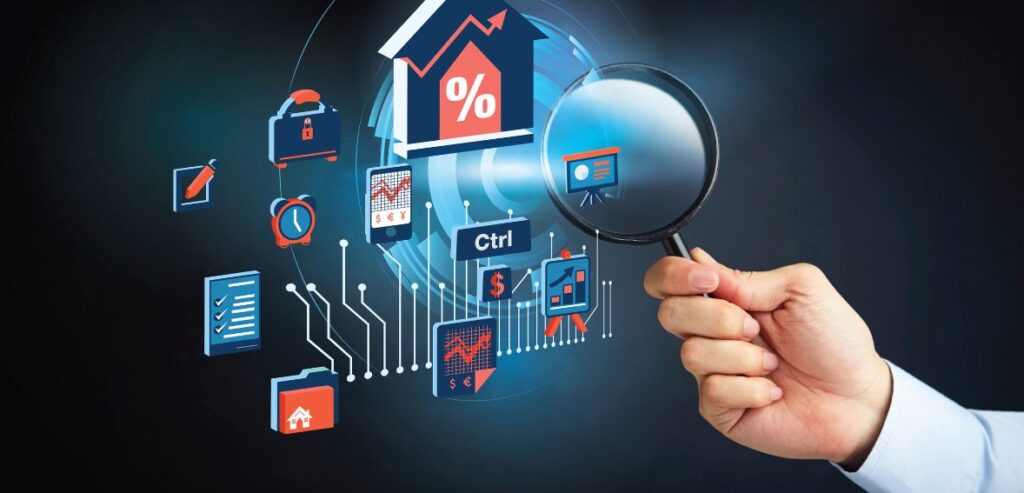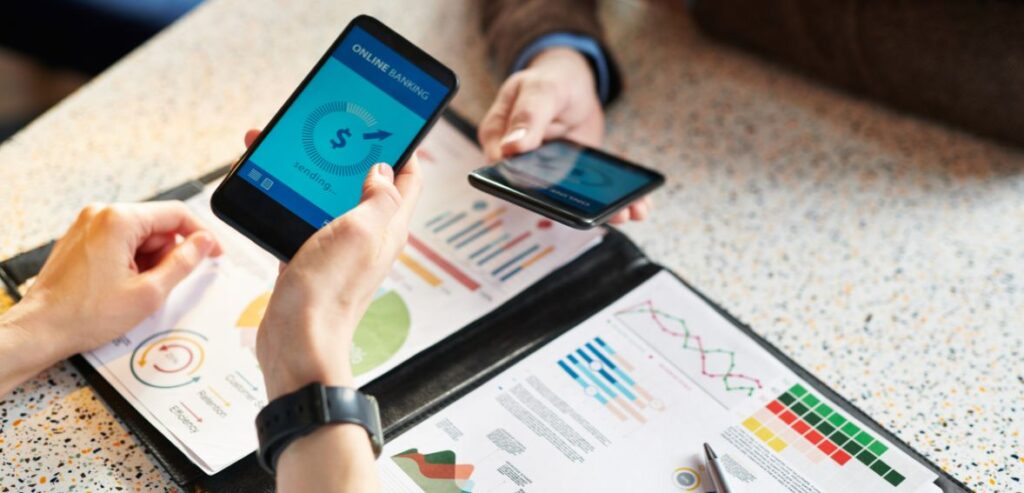Integrating property management software with other business systems can greatly improve efficiency by enabling a smooth data exchange across various platforms. This integration offers a consolidated view of financials and tenant relations, making it easier to manage rental properties effectively. By utilizing a comprehensive property management solution, businesses can better manage finances, track tenant interactions, and streamline other essential operations.
These integrations also tailor the software experience to meet specific business requirements. With an open API, property management systems provide extensive customization options, allowing for a variety of integrations that can adapt to your unique business goals. This connectivity with leading property management technologies ensures that your operations can run more effectively.
Let’s discuss how this property management software integration can advance your business operations.
What Is a Property Management System?
A property management system (PMS) is a software solution crafted to support property managers in effectively overseeing their properties and associated responsibilities. This tool is essential for automating and organizing tasks such as tenant management, lease management, maintenance oversight, financial operations, and generating reports.
Property management systems offer a unified platform or database that allows managers to store and retrieve crucial information about their properties and tenants. The goal of these systems is to streamline daily operations, enhance efficiency, and boost productivity.
Understanding APIs in Property Management

An API, or Application Programming Interface, significantly enhances property management by acting as a crucial connector among various software systems used in short-term and mid-term rentals. APIs enable smooth data exchange and communication between booking platforms, property management software, and other critical tools.
Property managers can use APIs to automate key functions such as reservation management, inventory control, pricing, and channel distribution.
APIs also provide direct access to important insights and analytics, allowing managers to make timely and well-informed decisions. This property management software integration improves operational efficiency and enhances the rental experience for both hosts and guests, ensuring a smooth and enjoyable stay. For instance, an API can allow your PMS to interact with your accounting software, facilitating automatic updates of invoices, payments, and financial reports, thus minimizing the need for manual input.
When Should You Consider Custom or Integrated Solutions?
When deciding whether to use custom solutions for your property management system (PMS), it’s important to consider several key factors, including your specific business needs, scalability, and integration capabilities.
Custom solutions are especially useful when you need unique features that are unavailable in standard commercial software. These might include specialized reporting tools, particular integrations with other software, or unique data handling requirements essential for your operations.
For instance, if your business manages different types of properties (such as hotels, industrial spaces, and residential units), and each category has specific management needs, a custom PMS can be tailored to address these diverse operational requirements efficiently. Custom systems can incorporate various functions such as lease administration, maintenance management, and tailored tenant communication tools, all of which are vital for effective large-scale property management.
Scalability is also a key factor. As your business expands, your PMS should be able to grow and add new features without major disruptions. Custom solutions are built with scalability in mind, facilitating the integration of new functionalities as your business needs change.
What Are the Benefits of Connecting Your PMS With Other Tools?

Connecting your PMS with other tools can provide several advantages, such as time and resource savings through automation, improved data accuracy and consistency, better customer service and satisfaction, increased productivity and efficiency, and enhanced revenue and profitability.
Automation helps reduce repetitive tasks, and eliminating manual data entry minimizes human errors. Streamlining workflows and processes can lead to quicker, more personalized customer responses. Utilizing data and analytics can aid in making well-informed decisions and optimizing pricing and marketing strategies.
Additional benefits include:
– Real-Time Updates and Inventory Management: Property management software integration allows for immediate synchronization of room availability across different distribution channels. As soon as a booking is made, updates are reflected on all platforms, which helps prevent overbookings and maintains accurate room availability. This can enhance revenue and customer satisfaction.
– Enhanced Guest Experience: Integrating a PMS with Customer Relationship Management (CRM) systems and other tools enables hotels to offer personalized services. Centralized guest profiles help staff anticipate guest needs, customize services, and boost loyalty. For example, arranging preferred room amenities for guests before their arrival can improve their overall experience.
– Streamlined Operations: Integrating PMS with operational tools like Point of Sale (POS) systems and facility management software helps efficiently manage various hotel functions—from front desk operations to maintenance and billing. This ensures smooth operations and improves staff productivity.
– Comprehensive Data Management and Reporting: Hotels can access advanced analytics and reporting capabilities by integrating PMS with other systems. This supports data-driven decisions that enhance financial performance, guest satisfaction, and marketing strategies.
– Improved Communication and Collaboration: Integrations improve communication between different hotel departments. For example, when a guest requests the front desk, the information can be instantly related to housekeeping or restaurant staff, enhancing service delivery and minimizing errors.
– Cost Efficiency: Automating various tasks and centralizing data management reduces the need for manual input and multiple system training, cutting labor costs and minimizing errors.
– Scalability and Future Proofing: Modern PMS platforms are scalable and adaptable to new technologies. They can integrate with upcoming technologies like Internet of Things (IoT) devices, intelligent building solutions, and even blockchain, helping the property stay technologically relevant and competitive.
Essential Property Management Integration Tools and Their Impact

Property management companies operate in a technology-driven sector, necessitating a robust IT infrastructure. This infrastructure encompasses many systems, software, and tools designed to streamline property operations, financial management, communication, and maintenance tasks.
CRM Systems: CRM is vital for property managers to manage interactions with current and prospective tenants. They store contact information, track communication history, and monitor tenant engagement and leads. CRM technology enhancements can also provide analytics for understanding tenant behavior and preferences, leading to improved tenant satisfaction and retention.
– Accounting Software: Integration with accounting software like Quickbooks is crucial for managing the financial aspects of property management. It handles rent collection, expense tracking, and payroll management tasks. Beyond these features, modern property management accounting software can automate many financial processes, offer real-time financial data, and assist in compliance with changing tax laws, thus reducing the likelihood of errors and enhancing financial transparency.
– Communication and Collaboration Tools: These tools include email systems, messaging platforms, and collaborative software, which facilitate clear and efficient communication within property management teams, tenants, and vendors. Advanced tools integrate features like video conferencing and real-time document collaboration, fostering a more dynamic and responsive operational environment.
– Document Management Software: This software manages the storage, organization, and retrieval of crucial property-related documents such as contracts, agreements, and compliance certificates. Sophisticated document management systems now feature enhanced security measures, version control, and accessibility options, which significantly ease the management of documents and ensure compliance with regulatory standards.
While each tool has a distinct function, they collectively form a cohesive ecosystem that enhances operational efficiency. Integrated effectively, these tools streamline individual tasks and contribute to the overall strategic management of properties, improving both service quality and business growth.
Different Strategies for Integrating PMS with Other Technologies
To ensure efficient PMS integration and improve success rates, it is advisable to adopt the following strategies:
– System Analysis and Planning
Begin by thoroughly analyzing all the systems involved in the integration. Evaluate their functions, understand the data flow between systems, and identify critical data that must be shared. Learn about the technical structure, verify system compatibility, and recognize any dependencies to anticipate possible challenges.
It is crucial to involve key stakeholders like IT personnel, property managers, end users, and vendors early in the planning phase to obtain useful insights and set clear expectations for the integrated system.
– Selecting an Appropriate Integration Method
Investigate various integration methods based on system compatibility and specific requirements, including middleware, data synchronization tools, or custom development solutions. Use APIs and established protocols to enable effective communication between systems, ensuring that data and functionalities are shared appropriately.
Opt for an integration approach that promotes scalability and flexibility, facilitating future enhancements or technological changes.
– Ensuring Data Consistency and Security
Accurate data mapping and transformation are prioritized to ensure uniformity in data fields and formats across systems, which is vital for system stability and accuracy.
Clean data to remove any duplicates, errors, or inconsistencies before integration to maintain high-quality data. Establish strong data governance policies, implement precise access controls, and determine data ownership to protect data integrity and security across the integrated systems.
– Comprehensive Testing and Ongoing Monitoring
Conduct thorough testing at each integration stage to promptly detect and rectify any issues. This should include data migration, functionality, performance, and security tests. Include end users in acceptance testing to verify that the system meets their requirements, operates correctly, and is user-friendly.
After integration, utilize monitoring tools and procedures to continuously assess system performance, quickly address any new issues, and improve system functionality as necessary.
Conclusion
Integrating property management accounting software with other tools significantly boosts efficiency and functionality, ensuring smooth data exchange across various platforms. This connectivity streamlines financial management, tenant relations, and other essential operations, adapting to specific business needs through extensive customization options provided by an open API. It allows for real-time updates, enhanced guest experiences, and comprehensive data management, among other benefits.
Businesses can optimize their operations by adopting strategies for efficient integration, such as thorough system analysis, appropriate integration methods, data consistency, and ongoing monitoring. Implementing these integrated solutions can significantly enhance productivity and improve overall service quality, making it a valuable approach for property management companies looking to advance their business operations.
Frequently Asked Questions
Integrating property management software with QuickBooks simplifies managing rent payments, expense tracking, and financial reporting. It reduces manual data entry and ensures accurate, up-to-date financial records.
Property management software improves tenant communication and management by offering online rent payments and integrated calendar features. This streamlines communication and keeps tenants updated with property-related events.
When selecting property management software, consider ease of integration, supported functionalities, customer support, and operational efficiency. Ensure the software meets your specific needs and integrates well with your other tools.
Property managers should expect an adjustment period with new technology. Training staff and adjusting workflows will help integrate new tools smoothly, improving operational efficiency and tenant communication.




